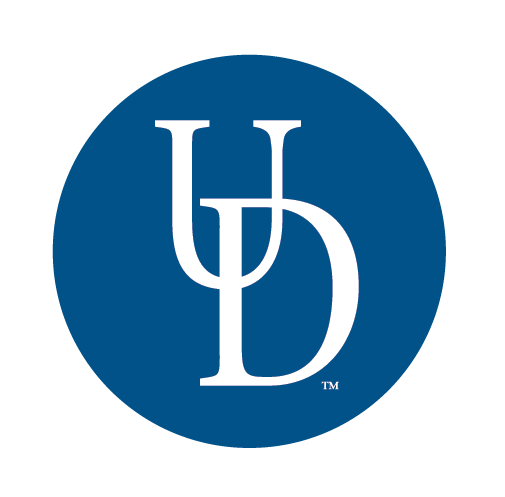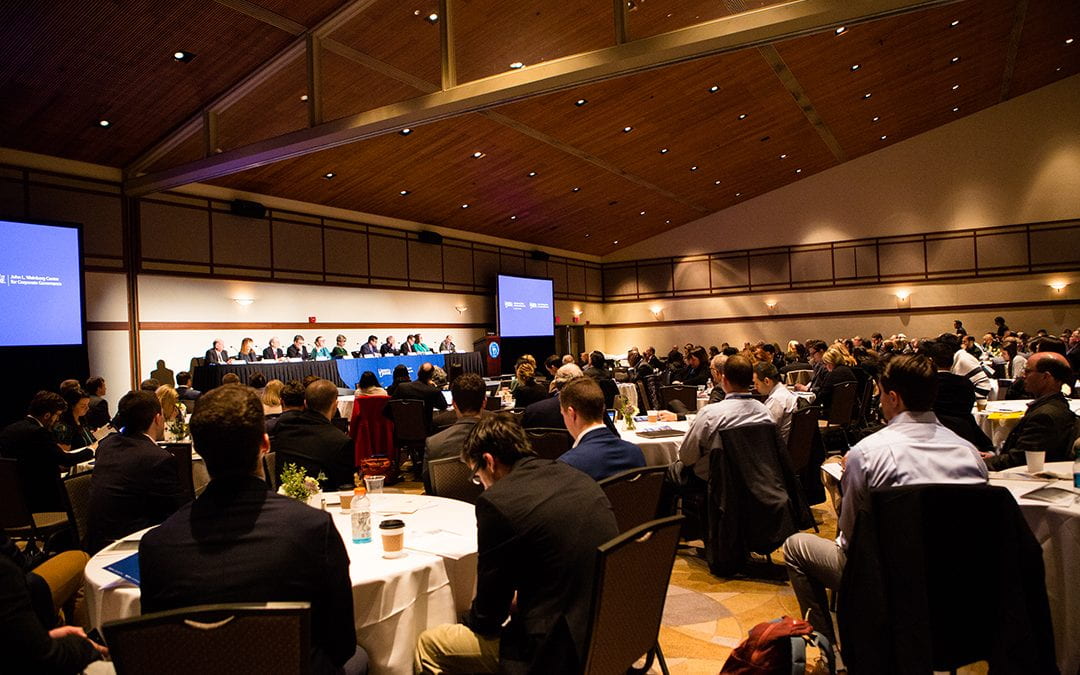
Past Events
November 7, 2024
12:00 pm – 1:30 pm
Webinar – Virtual
This webinar will address common legal issues and questions that parties, including acquirors/targets, directors, counsel, and financial advisors, encounter in mergers & acquisitions, as well as the impact of recent developments in Delaware and other relevant case law. Some of the topics to be covered include, among other things: considerations when selecting legal and financial advisors, when do Revlon duties apply, what does it mean for a seller to select a value maximizing offer, how does a buyer’s stock as consideration complicate matters, what work does a Board need to do in order to obtain fairness opinion, what to do if a potential deal leaks, common issues between the signing and closing of a transaction, changes to standard of practice requires based on recent Delaware decisions. The participants will also address some more thorny legal issues that arise in complex M&A situations, including transactions involving controlling stockholders, and responding to unsolicited offers and under what circumstances can the target just say NO. The participants will focus on board-level and practical considerations and takeaways in these challenging scenarios.
Click HERE to watch the video.

Participants:
- Elina Tetelbaum, Partner, Wachtell, Lipton, Rosen & Katz, Moderator
- Eddie Dixon, former Senior Vice President, Chief Legal Officer and Secretary, National Instruments Corporation
- Nicole Martinet, former General Counsel and Corporate Secretary, PDC Energy, Inc.
- Shawn Liu, Managing Director, BOFA Securities, Inc.
- Andrea Rose, Partner, Joele Frank, Wilkinson Brimmer Katcher
- Lawrence A. Cunningham, Director, John L. Weinberg Center for Corporate Governance, Host
Materials:
- “Takeover Law and Practice: Current Developments,” Harvard Law School Forum on Corporate Governance, May 3, 2023
- “Mergers and Acquisitions—2024,” Wachtell, Lipton, Rosen & Katz, January 9, 2024
- “Takeover Response Checklist,” Wachtell, Lipton, Rosen & Katz, 2024
- Panelists’ Bio

Past Events
Webinar | Board Minutes in Sixty Minutes: Recommended Practices and Insights
October 24, 2024 12:00 pm – 1:00 pm Webinar – Virtual
REGISTRATION IS CLOSED
Please join us for this program that will explore the evolving and challenging issues associated with Board minutes, emphasizing practical advice for boards, management, corporate secretaries, and their advisors. Board minutes are an important part of a corporation’s internal recordkeeping. They have also become important in corporate and securities litigation, with plaintiffs’ counsel using books and records requests in connection with their lawsuits. The panel members will discuss the purposes of board minutes; and recommendations related to board minutes, such as developing processes for documenting, good recordkeeping, timing, risks, recording of board meetings, and how to avoid pitfalls. Also, developments in Delaware cases impacting board minutes will be discussed. Plaintiffs’ and defense counsel on the panel will provide their insights, including their perspective on board minutes, the impact of litigation and the use of book and records requests.
Participants:
- Mary Francis, Corporate Secretary and Chief Governance Officer, Chevron Corporation, Moderator
- Joel Fleming, Partner, Equity Litigation Group LLP
- Margaret (Peggy) Foran, Chief Governance Officer, Senior Vice President and Corporate Secretary, Prudential Financial, Inc.
- Blake Rohrbacher, Director, Richards Layton & Finger
- Lawrence A. Cunningham, Director, John L. Weinberg Center for Corporate Governance, Host
This Weinberg Center panel provided attendees with useful insights and practical takeaways.
Click here for the panel video.

Materials:
- Loren Trent Hightower v. Sharpspring, Inc., C.A. No. 2021-0720-KSJM, Delaware Court of Chancery, August 31, 2022
- H&N Management Group, Inc. & Aff Cos Frozen Money Purchase Plan v. Robert M. Couch et al., Civil Action No. 12847-VCMR, Delaware Court of Chancery, August 1, 2017
- ONTARIO PROVINCIAL COUNCIL OF CARPENTERS’ PENSION TRUST FUND, POLICE & FIRE RETIREMENT SYSTEM OF THE CITY OF DETROIT, AND NORFOLK COUNTY RETIREMENT SYSTEM, Derivatively on Behalf of WALMART INC. v. ROBSON WALTON, GREGORY B. PENNER, STEUART WALTON, TIMOTHY P. FLYNN,THOMAS W. HORTON, MARISSA A. MAYER, DOUG MCMILLON, STEVEN S. REINEMUND,PHYLLIS HARRIS, and JAY JORGENSEN, and WALMART INC., C.A. No. 2021-0827-JTL, Delaware Court of Chancery, April 26, 2023
- “Corporate Minutes: A guide for the Corporate Secretary,” Society for Corporate Governance, October 2022. (With permission from the Society of Corporate Governance)
- “Why Board Meeting Minutes Really Matter,” BoardPro, September 7, 2022
- “The Angel’s in the Details: The Importance of Carefully Draft Board Minutes,” Sonia Nijjar, Jenness Parker, and Lauren Rosenello, Skadden, Arps, Slate, Meagher & Flom LLP, Fall 2022.
- “Revisiting the Board’s Oversight Role After In re: Boeing Co.,” Akin Gump Strauss Hauer & Feld, Harvard Blog, June 1, 2022
- “Section 220 Decisions Amplify Stockholders’ Rights to Inspect Books and Records,” Fried, Frank, Harris, Shriver & Jacobson LLP, October 3, 2022
- Minutes are Worth the Minutes Good Documentation Practices Improve Board Deliberations and Reduce Regulatory and Litigation Risk, Leo E. Strine, Jr.
- Bios of the Panelists

Past Events
Lawrence A. Cunningham | 2024 John L. Weinberg Distinguished Speaker
April 11, 2024
1:00 pm – 1:50 pm ET
We are honored to have Lawrence A. Cunningham as the 2024 John L. Weinberg Distinguished Speaker. Mr. Cunningham is Professor Emeritus at George Washington University and Special Counsel at Mayer Brown.
The topic of his talk was “Speaking Out on Hot Button Topics: How Boards Can Steer CEOs and Companies in Choppy Waters.” Corporate leaders face complex challenges in responding to public debates on contentious topics. They must balance competing pressures to speak or remain silent, while navigating the polarization of today’s discourse and the diverse and powerful interests of various constituents not only among shareholders but employees, consumers, and civil society groups. In this talk, Professor Cunningham suggested that corporate leaders should not follow a fixed or ideological rule on whether to take public positions, but rather a pragmatic approach that evaluates the specific context and circumstances of each situation. The talk used the history and law of corporate governance, as well as practical experience, to illustrate that the best strategy for each board and CEO will vary depending on the unique features of their corporation and its leadership, its shareholder base, its workforce, the markets it serves, and how these factors relate to given public debates.
Click here for the Speaker VIDEO
Should CEOs Speak Out? A Board Framework (pdf), The Corporate Board, July/August 2024
Panel: “Zapata and Special Litigation Committees: Perspectives on What’s Working, What’s Not, and How We Can Improve the Process”
2:00 pm to 3:30 pm ET
This panel was a ninety-minute interactive event. Panelists from a wide cross-section of perspectives discussed Zapata’s two-part test for assessing a Special Litigation Committee’s determination to terminate a derivative action. They explored the composition, purposes, and authority of Special Litigation Committees (SLCs); the initial purposes of Zapata and its evolution over the past 40 years; and whether Zapata is working as intended or needs to be revisited. They discussed practical takeaways for SLCs and lawyers on both sides of the “v” as we work through these issues.
Moderated by Christine M. Mackintosh, Co-Chair of the Chancery Litigation Group at Grant & Eisenhofer, the panel will include:
- The Honorable Joseph R. Slights III, Partner, Wilson Sonsini Goodrich & Rosati and former Vice Chancellor, Delaware Court of Chancery
- Elena C. Norman, Partner, Young Conaway Stargatt & Taylor
- Mark D. Richardson, Partner, Labaton Keller Sucharow
- David F.E. Tejtel, Principal, Friedman Oster & Tejtel
Click here for the Panel VIDEO
A Proposal For Improving Trust In The Special Litigation Committee Process,“ Harvard Blog, August 9, 2024 [See footnote 14)
MATERIALS
- Slides
- Program Agenda
- Participant Bios
- Across the Board – CEO Comments on Public Policy: An Internal Governance Framework, Lawrence Cunningham, January 2023
- How — and When — Should Companies Engage in the Political Process?, Harvard Business Review, May 2023
- When should CEOs speak out on public issues?, Fortune, May 2021
- CEOs [not] Speaking Out, KPMG, March 2022
- Companies That Embraced Social Issues Have Second Thoughts, Wall Street Journal, June 2023
- Companies Quiet Diversity and Sustainability Talk Amid Culture War Boycotts, Wall Street Journal, June 2023
- Importance of Special Litigation Committees in Maintaining Board Control Over Derivative Litigation, Harvard Law School Forum on Corporate Governance Blog, May 24, 2023
- Thoughts of a Jewish-American Plaintiffs’ Lawyer on the Past and Present of Stockholder Litigation, Joel Friedlander, The M&A Journal, Volume 23 Number 4, November/December 2023
- ZAPATA Corporation v. William MALDONADO, Supreme Court of Delaware, Decided May 13, 1981
- Kevin DIEP, derivatively on behalf of EL POLLO LOCO HOLDINGS, INC. v. TRIMARAN POLLO PARTNERS, L.L.C. and EL POLLO LOCO HOLDINGS, Inc., Supreme Court of Delaware, No. 313, 2021, Decided June 28, 2022
- IN RE BAKER HUGHES, A GE COMPANY, DERIVATIVE LITIGATION, Court of Chancery of Delaware, Decided: April 17, 2023
CLE and Materials: Approved to 2.2 Delaware CLE credits. Materials and additional information were sent in advance of the program.
For any questions, please contact Louisa Cresson at lcresson@udel.edu.

Past Events
2024 University of Delaware Weinberg Center/ECGI Corporate Governance Symposium
and John L. Weinberg/IRRCi Research Paper Award Competition
PAST EVENT | March 15, 2024
Time: 8:00 am – 5:30 pm ET
Location: Clayton Hall, University of Delaware, Newark DE
In-person and Live-stream
Call for Papers
Click Here for the 2024 Symposium Program
In collaboration with the European Corporate Governance Institute (ECGI), the John L. Weinberg Center for Corporate Governance and the Department of Finance at the Lerner College of Business and Economics at the University of Delaware hosted its 2024 annual corporate governance symposium. The winners of the 2024 John L. Weinberg/IRRCi $10,000 Research Paper Award competition were announced during the program.
The winning papers are:
- Do Board Connections Between Product Market Peers Impede Competition?
Authors: Radhakrishnan Gopalan (Washington University in St. Louis, deceased), Renping Li (Washington University in St. Louis), Alminas Zaldoka (National University of Singapore)
Read the Paper
- The Social Cost of Liquidity Disclosure: Evidence from Hospitals
Authors: Thomas Bourveau (Columbia University), Xavier Giroud (Columbia University, Yifan Ji (University of South Carolina), Xuelin Li (Columbia University)
Read the Paper
- Specialist Directors
Authors: Yaron Nili (University of Wisconsin Law School) and Roy Shapira (Reichman University)
Read the Paper
The papers included in the Symposium collectively addressed new developments and critical issues within the area of corporate governance.
The Symposium also included the presentation by the one of the authors of the paper selected as the winner of ACC/Weinberg Center Carl Liggio Memorial Award.
Program Videos

Past Events
The Evolving ESG Landscape: Practical Advice for Boards and Companies in 2024
Date: February 21, 2024
Time: 2:00 pm – 5:00 pm, A reception following
Location: In-Person, Clayton Hall , University of Delaware, Newark, DE
Chatham House Rules applied
This three-hour interactive event was the third annual ESG program hosted by the Weinberg Center at the University of Delaware. Panelists, who represent a wide cross section of perspectives, explored the most challenging issues emerging in the ESG landscape from the board’s vantage point, emphasizing practical advice for boards and management. The program was led by John W. White, a partner from Cravath, Swaine & Moore LLP. Rather than dwelling on regulatory requirements and proposals by the SEC and European regulators in the ESG arena, the focus was on the board and advising the board on its responsibilities. The discussion drilled down on the ESG-related issues that boards are grappling with the most today.
Panelists discussed effective board oversight of ESG, board involvement in interactions with investors, employees and other stakeholders, responding to ESG backlash, board responsibility for integrating ESG into strategy and operations, setting ESG goals, ESG activists and shareholder proposals. Basic themes from the past programs were not be overlooked: locating ESG oversight responsibilities on the board and its committees, analyzing the interplay of ESG and fiduciary duties, promoting ESG savviness on the board through education and board member selection, and the importance of reliable data and internal control procedures. As panelists explored these challenging issues, as has been the tradition at this program, the emphasis was on practical advice and takeaways for boards and those who advise boards.
In addition to John White, the other confirmed participants were:
- Michael L. Arnold, Partner, Cravath, Swaine & Moore LLP
- Paul Atkins, Chief Executive, Patomak Global Partners; and former Commissioner, Securities and Exchange Commission
- Paul A. Beswick, EY Americas Director of Accounting and Chief Accountant, Ernst & Young LLP; and former Chief Accountant, Securities and Exchange Commission
- The Honorable Andre Bouchard, Partner, Paul, Weiss, Rifkind, Wharton & Garrison LLP; and former Chancellor, Delaware Court of Chancery
- Mary Francis, Corporate Secretary and Chief Governance Officer, Chevron Corporation
- Consuelo Hitchcock, Principal, Regulatory Affairs group, Deloitte & Touche LLP
- Jeffrey P. Mahoney, General Counsel, Council of Institutional Investors

Past Events
Thursday, October 12, 2023
9:30 am – 4:45 pm (8am registration)
CLAYTON HALL CONFERENCE CENTER
UNIVERSITY OF DELAWARE
100 David Hollowell Drive
Newark, DE 19716
Agenda
WELCOME!
The John L. Weinberg Center for Corporate Governance and the Corporate Governance Committee of the American Bar Association’s Business Law Section will co-host the in-person Delaware Governance Institute.
This program will feature members of the Delaware judiciary, including the Honorable Collins J. Seitz, Jr., Chief Justice of the Delaware Supreme Court and the Honorable Kathaleen St. J. McCormick, Chancellor of the Delaware Court of Chancery; members of the corporate community and plaintiff and defense attorneys, regulators, governance professionals, and institutional investors. In addition to the luncheon speaker(s), the Institute will consist of four panels, covering the most significant recent trends in Delaware law and corporate governance.
The topics to be explored by the Panels:
- The ESG Pendulum Swings Back (or is it a “Wrecking Ball”?”)
- The March of Caremark: What must directors do to avoid stepping on landmines?
- Conflict Transactions under a Microscope: When does (and should) MFW apply?
- Managing Everything, Everywhere, All at Once: How to have an effective board in these unusually challenging times
Speakers and panelists confirmed to date include:
- The Honorable Collins J. Seitz, Jr., Chief Justice, Delaware Supreme Court
- The Honorable Kathaleen St. J. McCormick, Chancellor, Delaware Court of Chancery
- Rick Alexander, Founder and Chief Executive Officer, The Shareholder Commons
- Paul Atkins, Chief Executive, Patomak Global Partners; and former Commissioner, Securities and Exchange Commission
- Lisa Boyd, Managing Director, Joele Frank, Wilkinson Brimmer Katcher
- James Cole, Jr., Chairman & Chief Executive of The Jasco Group, LLC; Director and Chair of the Nominating and Governance Committee, AIG
- Lawrence A. Cunningham, Special Counsel, Mayer Brown; Professor Emeritus, George Washington University; and Director, Markel Group and other public companies
- Michelle Edkins, Managing Director, Blackrock Investment Stewardship
- Peggy Foran, Chief Governance Officer, Senior Vice President and Corporate Secretary, Prudential Financial, Inc.
- Mary Francis, Corporate Secretary and Chief Governance Officer, Chevron Corporation
- Lawrence A. Hamermesh, Professor Emeritus, Widener University Delaware Law School
- Meredith Kotler, Partner, Co-head Securities & Shareholder Litigation, Freshfields Bruckhaus Deringer LLP
- Trevor S. Norwitz, Partner, Corporate, Wachtell, Lipton, Rosen & Katz
- Frank M. Placenti, Shareholder, Greenberg Traurig
- Melissa Sawyer, Partner, Global Head of the Mergers & Acquisitions Group and co-head of the Corporate Governance Practice, Sullivan & Cromwell LLP
- Gregory V. Varallo, Partner, Bernstein Litowitz Berger & Grossmann LLP
- Mary Beth Vitale, CEO and Principal, Pallera, LLC; Director, Luna Innovations
- John W. White, Partner and Chair of the Corporate Governance and Board Advisory Practice, Cravath, Swaine & Moore LLP *
Keynote Speakers:
- Elad L. Roisman, Partner, Corporate, Cravath, Swaine & Moore LLP; and former Commissioner and Acting Chairman, Securities and Exchange Commission
- Prashant Yerramalli, Vice President of Operations and Regulatory Affairs, Public; and former Chief of Staff for Securities and Exchange Commission Chairman Gary Gensler
- Robert Stebbins, Partner, Corporate & Financial Services Department and Co-Chair of the Corporate Governance practice, Willkie Farr & Gallagher LLP; and former General Counsel, Securities and Exchange Commission, Moderator
Speaker Bios
This program will be highly relevant as Delaware law and court decisions are highly influential on corporate and governance practices throughout the country.
Program Co-Chairs: Justin P. Klein, Director, John L. Weinberg Center for Corporate Governance, and Frank M. Placenti, Esq, Chair of the ABA Corporate Governance.Committee, and Shareholder, Greenberg Traurig, LP.
Steering Committee Members: Louisa K. Cresson, Assistant Director, John L. Weinberg Center for Corporate Governance; Katayun Jaffari, Chair-elect of the ABA Corporate Governance Committee, chair of the Corporate Governance Group, co-chair of the Capital Markets & Securities Group, and co-chair of the ESG Practice, Cozen O’Connor; John W. White, Partner and Chair of the Corporate Governance and Board Advisory Practice, Cravath, Swaine & Moore LLP; Tammy L. Mercer, Chair of the Corporate Litigation and Counseling Section, Young Conaway Stargatt & Taylor, LLP; Patricia O. Vella, Partner, Corporate Counseling, Morris, Nichols, Arsht & Tunnell LLP; and Trevor S. Norwitz, Partner, Corporate, Wachtell, Lipton, Rosen & Katz.
CLE: CLE credit will be offered. Materials will be sent in advance of the program.
Resource Materials
- The Shareholder Commons’ rebuttal to State Street’s Notice of Exempt Solicitation, 2023
- “ESG in 2023: Looking at the Year Ahead,” January 26, 2023
- “On the Debate Regarding ESG, Stakeholder Governance, and Corporate Purpose,” March 13, 2023
- “Navigating the Current ESG Landscape: Recommendations for the Board and Management,” May 22, 2023
- “DEI Initiatives Post-SFFA: Considerations for Boards and Management,” August 8, 2023
- In re Caremark International Inc. Derivative Litigation (1996)
- Marchand v. Barnhill (2019)
- In re Clovis Oncology Derivative Litigation (2019)
- In re the Boeing Co. (2021)
- In Re McDonald’s Corp. Stockholder Litigation (Jan 2023)
- In re McDonald’s Corp. Stockholder Litigation (March 2023)
- In Re ProAssurance Corp. Stockholder Derivative Litigation October 2023)
- “Caremark Exposure – And what to Do About It,” January 23, 2023
- “The Securities and Exchange Commission — Current Rulemaking Agenda”
- “Optimizing the World’s Leading Corporate Law: A 20-Year Retrospective and Looking Ahead” November 2021
- “Activist-appointed Directors” by Jun-Koo Kang , Hyemin Kim, Jungmin Kim, Angie Low : SSRN (October 2020)
The Upside of Virtual Board Meetings (hbr.org) (2020)
- “Faultlines: understanding how board composition may influence team dynamics and subgroup formation in corporate boards,” from Research Handbook on Diversity and Corporate Governance (2023)
- “Welcome on Board? Appointment Dynamics of Women as Directors” Journal of Business Ethics (springer.com) (2023)
- “Activism, ESG and universal proxy: How to make friends and influence shareholders” Corporate Secretary (August 2023).
- “Shareholder Activism: Lessons from the First Season of Universal Proxy”, Harvard Law School Forum on Corporate Governance (July 2023).
- “Why Boards Should Think Like Activists”, Heidrick & Struggles (no date).
- “What can we learn from virtual boardroom dynamics to shape future decision making?”, LinkedIn (May 2020).
- “A Board’s Guide To Conducting Virtual Shareholder Meetings,” Law360 (April 2020).
- “Board Dynamics in a Virtual World,” LinkedIn (April 2020).
- “NACD: ‘New universal proxy card rules and growing access to proxy voting will sow disorder in the boardroom–but bring enlightenment in the long term’”, Fortune (March 2023).
Media Coverage









